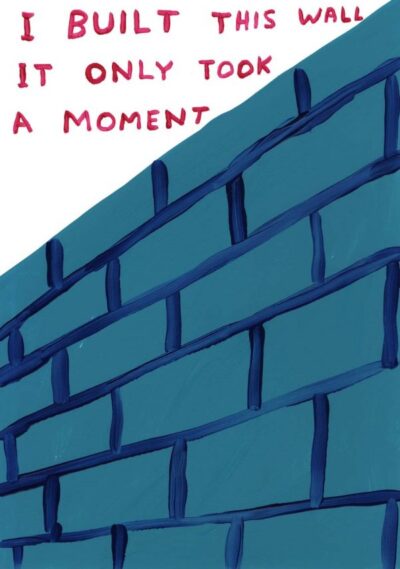00V of potential hindrances to our creative development continued…
Continuing on from the last post: what happens when we feel we’ve totally lost all inspiration or have to be creative on demand?
I’ve had my fair share of feeling like a wind-up toy that has hit a wall and then keeps revving up against it. There are endless reasons why our inspiration might be pulled out from under us: a traumatic event, an illness, an oppressive work environment, time constraints, a cryptic process, pressure for continued success (praise asks us to repeat ourselves) etc. For me it always comes back to the unity of opposites—receptive and active, intuition and logic/reason, doubt and certainty…and I am usually blocked when my intellect (or one side) is doing all the driving.
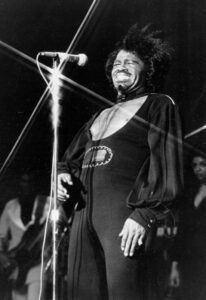
James Brown. Feb. 12, 1974.The dynamic, “Godfather of Soul’s” rasping vocals and revolutionary rhythms made him a founder of rap, funk and disco. AP Photo.
If we understand inspiration as a guest we invite through our attention and appreciation of what we love, we are really talking about a feeling. When I am totally uninspired, my inner James Brown will pipe up and ask, “What’s the matter? You lost your soul? You lost your feelin’?” If we are giving attention without feeling it’s just dry sterile reporting— it’s one sided if we are all intellect. We can’t think our way back to the creative field. What worked before may become stagnant; too much reliance on familiar routines puts us on repeat. Inspiration seems to prefer entering through the heart and a feeling of spontaneous alive connection. We need to find the feelin’.
One thing that sparks the feeling in me is to wonder about the unknown. This may involve new subjects of inquiry (quantum science is a great mystery and curiosity to me), some new material or tools I’ve never tinkered with, strolling down new streets or visiting new places and people. Contemplating or meeting mystery has a good chance of opening us up or reconnecting us to mystery. In her lecture titled Animus and Eros, Jungian psychologist Barbara Hannah notes:
“I have found the best way to loosen up the block is to concentrate on the unknown, on the infinite, to wonder, for instance, about life after death, or on what we brought into life at our birth, or another aspect of the infinite that interests us.”
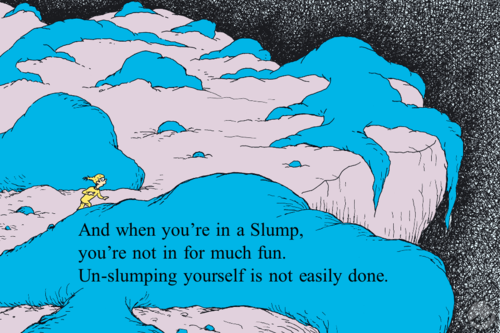
Dr. Suess, obviously.
Another gateway that I find helpful is to take up an enjoyable alternate medium that we don’t ask anything of. Writer Madeleine L’Engle shares her approach to using a piano to unhinge writing barriers:
“Playing the piano is for me a way of getting unstuck. If I’m stuck in life or in what I’m writing, if I can I sit down and play the piano. What it does is break the barrier that comes between the conscious and the subconscious mind. The conscious mind wants to take over and refuses to let the subconscious mind work, the intuition. So if I can play the piano, that will break the block, and my intuition will be free to give things up to my mind, my intellect. So it’s not just a hobby. It’s a joy.”
Sometimes a block or disconnect can come out of the pressure to create on demand. Practice and legit self-awareness could help us out of this one. If we identify as an artist or make a living through our creative practice we cannot easily default to the whole I’m not in the mood, but we must not become too dependent on our craft so that all of our attention is habitually directed to what is known. Working without inspiration won’t produce our best work but it might get us ready if we do it to make ourselves available and meet it half way.
Russian composer Pyotr Ilyich Tchaikovsky wrote to his benefactress, Nadezhda von Meck, in March of 1878:
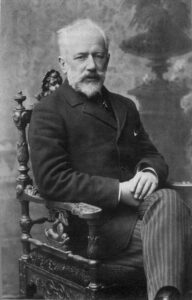 Do not believe those who try to persuade you that composition is only a cold exercise of the intellect. The only music capable of moving and touching us is that which flows from the depths of a composer’s soul when he is stirred by inspiration. There is no doubt that even the greatest musical geniuses have sometimes worked without inspiration. This guest does not always respond to the first invitation. We must always work, and a self-respecting artist must not fold his hands on the pretext that he is not in the mood. If we wait for the mood, without endeavouring to meet it half-way, we easily become indolent and apathetic. We must be patient, and believe that inspiration will come to those who can master their disinclination.”
Do not believe those who try to persuade you that composition is only a cold exercise of the intellect. The only music capable of moving and touching us is that which flows from the depths of a composer’s soul when he is stirred by inspiration. There is no doubt that even the greatest musical geniuses have sometimes worked without inspiration. This guest does not always respond to the first invitation. We must always work, and a self-respecting artist must not fold his hands on the pretext that he is not in the mood. If we wait for the mood, without endeavouring to meet it half-way, we easily become indolent and apathetic. We must be patient, and believe that inspiration will come to those who can master their disinclination.”
This mastery of disinclination does not mean we need to submerge ourselves in anxious busy-work in hopes that inspiration will come to us. It is a wily creature that won’t show up when we are pretending not to wait and look for it. It’s like having a crush on someone and coming on way too strong so they want nothing to do with us or when a child stalks some poor kitten that frantically tries to squeeze through an impossible crack so it can disappear. When I go into my studio (a room in the basement) and pull out some inks or paint or whatever, I just enjoy messing around with my material to put my intellect in the back seat. Honestly, the less I do the more creative I am. If inspiration shows up I am delighted and when it vanishes, I’m okay with that. I recognize it as a pulse—it comes and goes of its own accord and, like I’ve been saying, I do my best to be patient and non-resistant for its arrival.
Even if we do not identify ourselves as artists, we could still be faced with a part of ourselves that would rather sit back passively until a creative mood strikes us instead of meeting it halfway. This hanging back seems to be an aspect of our collective nature that we all need to face in our own way if we want to connect with our creative self. Awareness of distractions seems vital.
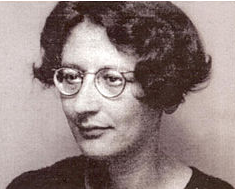
Simone Adolphine Weil. February 1909- August 1943.
French philosopher, mystic, and political activist Simone Weil wrote a “List of temptations (to be read every morning). I’m not saying you should do this, I only bring it up as an example of an attempt to be aware of one’s inner workings (and potential resistance):
- Temptation of idleness (by far the strongest)
Never surrender to the flow of time. Never put off what you have decided to do.
- Temptation of the inner life
Deal only with those difficulties which actually confront you. Allow yourself only those feelings which are actually called upon for effective use or else are required by thought for the sake of inspiration. Cut away ruthlessly everything that is imaginary in your feelings.
- Temptation of self-immolation
Subordinate to external affairs and people everything that is subjective, but never the subject itself — i.e. your judgement. Never promise and never give to another more than you would demand from yourself if you were he.
- Temptation to dominate
- Temptation of perversity
Never react to an evil in such a way as to augment it.
If our being creative on demand has to do with being shoved in a work meeting room this will likely pose more of a challenge. I personally would insist on taking the problem at hand and then leaving the building to relax and mull it over on my own. Strolling aimlessly is one of my portals to creative insight. Perhaps it’s currently too ideal to ask that my colleagues/co-workers are all somewhat aware of their personal gateways to becoming available to new ideas and connections. On the other hand, it seems like a big waste of time to settle for swapping opinions. As Albert Einstein pointed out: “No problem can be solved from the same level of consciousness that created it.” And he allegedly came to some of his greatest discoveries while taking a break to play his violin.
To harmonize the whole is the task of art.
WASSILY KANDINSKY
[*Title image art by David Shrigley. davidshrigley.com]
*Disclaimer: No copyright infringement intended. I do my best to track down original sources. All rights and credits reserved to respective owner(s). Email me for credits/removal.
